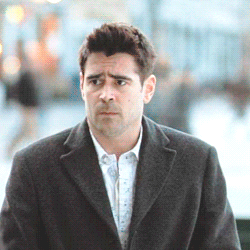Issue #50
Guten Morgen!
A long and rainy Pentacost weekend lies ahead of us – we wish you a wonderful start into yours with the newest Krautshell edition and a bit more sun than we’re getting.
Enjoy and ping us for more!


Anna Christian
FIRST, SOME SOLID INTEL:
#RoadToBTW21 Resurgence of Lindner and the FDP?
It was only four short years ago when Christian Lindner, head of the Free Democratic Party (FDP, or “the liberals”) publicly declared “It is better not to govern than to govern wrongly.” This statement came after the 2017 Bundestag Election, when Lindner’s party pulled out of coalition talks for a possible “Jamaica coalition” consisting of the CDU/CSU, the Greens and the FDP because the agreement would have “compromised the party’s principles.” The FDP is Germany’s pro-business liberal democratic party. Essentially, they believe in laissez-faire policies, both in the economy and in terms of government involvement in citizens’ lives. Back in 2017, the FDP’s move didn’t gain it any popularity among voters, and poll numbers remained low afterwards. In fact, at one point during the pandemic, the FDP was doing so badly it wasn’t sure whether they’d reach the five percent hurdle to enter the Bundestag.
Fast forward to the present day and the picture looks completely different. The party is currently polling around 12 percent, and a so-called “traffic light coalition” with the Greens and SPD is still very much in the cards. What changed? After months of anti-liberal Corona-lockdowns, a genuine concern for the economy, and fears about the Green’s ability to reform the state, the FDP is starting to sound like a good option for many voters. And, this time, you can be sure the Free Democrats won’t make the same mistake twice as Lindner indicated that the party is “ready to govern.” This same upswing spirit was very apparent at the party’s federal congress last weekend, where the delegates re-elected Lindner as party leader with 93% of the vote and finalized their election program. The buzzwords of the program are tax relief, less bureaucracy, digitization and a reform of the state. Furthermore, where the FDP clearly distinguishes itself from the rest of the pack is in climate policy: the liberals believe achievement of climate protection targets should be left “to the ingenuity” of engineers and scientists instead of the state. Finally, the FDP wants to pump more money into education, one of the sectors they believe the state does have a positive impact. Have any more questions about the FDP? Feel free to ping us anytime!
The Vaccination Campaign For Children
The US has already started vaccinating the children and Angela Merkel now believes this is a top priority for Germany. Those of us with kids (or those who deal with them as a youth soccer coach) can say for certain: they need some “normal life” again. They need to meet friends, do sports, and regain social contact. Thankfully, the European Medicines Agency (EMA) is assessing the use of the BioNTech/Pfizer vaccine for 12–15-year-olds. Currently, in Europe everyone 16 and above can receive the BioNTech/Pfizer jab. However, we could face an unpleasant conflict here. While it is likely that the EMA will approve the vaccine for adolescents, the German STIKO (an institution in Germany for monitoring vaccines) will not recommend it for this age group.
Why is that so? The simple answer is “data.” The STIKO is of the opinion that there is not enough data available to safely recommend the vaccine for younger people. This doesn’t mean that the vaccine is not good and whenever the EMA allows its usage, you can get a shot. But the STIKO has a high reputation in Germany, which means we could face a situation in which the vaccine is allowed but parents will be unsure whether to get it for their children or not. This is a challenge for politics and especially for Federal Health Minister Spahn (CDU). He already indicated that on one hand wants to vaccinate adolescents but on the other he doesn’t want to act against recommendations of the STIKO. When this happens, the results will probably be long consultations between parents with doctors, slowing down the vaccination campaign. We can only hope this gets figured out fast.
Another Week of Israeli-Palestinian Violence: What is Europe’s Role?
Late on Thursday, Israel and Palestine agreed to a cease fire after 11 days of intense fighting. Before getting into politics, we just want to say: we sincerely hope this truce lasts.
Following up on last week’s article on the perception of the conflict in Germany, this week we want to dive into Europe’s political role over the past week. First and foremost, the EU has seriously struggled to even develop a common position on the conflict. While Belgium, Ireland, Sweden and Luxembourg are more critical of Israel, Austria and the Czech Republic have been flying the Israeli flag over official buildings over the past week in solidarity. Furthermore, at a meeting between EU foreign ministers on Tuesday, Hungary was the only country to reject the text of a joint statement by the member states, forcing Josep Borrell, the EU’s top diplomat, to informally call for an end the violence on his own. Therefore, much like we saw with vaccine procurement, when the EU fails to react quickly as one, member states go off and do their own thing. France and Germany both kicked their diplomatic efforts into high gear, using their political weight to nudge both sides towards a ceasefire. French President Emmanuel Macron used his country’s longstanding connections with Egypt to try and appeal to the Palestinian side, while German Foreign Minister Heiko Maas made a trip to Israel, meeting with both Israeli and Palestinian leaders. Further up the German chain of command, Chancellor Angela Merkel spoke to Palestinian President Mahmoud Abbas on the phone, and both leaders agreed to continue pushing for a truce. Following the announcement of the cease fire, European leaders carefully praised the move while also continuing to call for a long-term solution.
Big, Bigger, Chancellery
Admittedly, normally, everything in the US is bigger and more glamorous than here in Germany. However, did you know that the German Chancellery, Angela Merkel’s office, is actually the biggest government seat in the Western world (8 times bigger than the White House, sorry!)? Still, enough is never enough: plans to expand the office have been public for quite some time now. The current Chancellery was designed with space for approximately 450 people, but Chancellor Merkel employs around 750 people. The new extension is meant to provide offices for another 400 employees, a flat for the Chancellor, all at a cost of around SIXHUNDRED million Euros. So far, no kilo of concrete has been mixed, but the costs for planning already amount to €24 million.
This week, it was time for the opposition parties to ask for the sense of the extension. The beginning of construction work is planned for March 2024, leading the opposition parties to question the logic as one doesn’t know what the new government(s) need. According to the current government, if this is the criteria to judge on, then large construction projects would never be undertaken, as they will always exceeds a government’s term. Reiner Holznagel, President of the German Association of Taxpayers, thinks the plans are outdated and that the new government should critically assess what is really needed. Or as some FDP politicians put it this week: more government employees mean more regulation and bureaucracy, and this is what we need to prevent. But at the end, it also always about prestige and certainly the Mega-Chancellery would have some of that.
The New Strong Man in Slovakia – Corona, Corruption, Russia and German Friendship
Since a few weeks, Slovakia has a new Prime Minister. Eduard Heger (conservative) wants to take on the fight against corruption and the Coronavirus pandemic. But, first of all, he needs to deal with some skeletons in his closet, left by his predecessor. Slovakia is a strategically very important state for the EU. The ex-Soviet state was part of the Eastern integration of the EU, decreasing Russian influence in Eastern Europe and promoting democracy and social market economy in the region. Heger became Prime Minister after his predecessor Matovič came under fire for going solo, especially with view to Russia. Concretely, Matovič negotiated purchases of the Russian vaccine Sputnik V, despite its lack of approval in Slovakia (just like in the rest of the EU).
Heger has to deal with many problems. The corruption in the country is high, and even though he is Prime Minister now, Matovič still leads their common political party and in that function continued negotiations about Sputnik V with Russia. Simultaneously, out of solidarity to its closest neighbor and ally, the Czech Republic, Heger had to expel Russian diplomats from Slovakia after the Czech government did just that. Heger is an advocate for a closer EU integration and for the EU acting as a geopolitical power. He emphasizes his country’s close relationship with Germany but also argues that no country should see itself in the “leading role” of the EU as constructive results can only be achieved through all states having a say. Even if his term is short, it could very well be that Heger becomes one of the strong voices in Eastern EU, which is why it might be worth following his actions.
Air Taxis and Delivery Drones: Europeans Open to the Airspace of Tomorrow
The idea that drones may soon be flying above our cities and towns delivering packages and transporting people may not be such a foreign concept to many of you in the US. However, the concept has not quite taken hold yet in Europe, or so we thought. This week, the European Union Aviation Safety Agency (EASA) released the results of a study examining the attitudes, expectations and concerns of 3,690 EU citizens with respect to Urban Air Mobility (UAM) and the results were quite surprising.
First of all, 83 percent of respondents had a positive perception of UAM, 64 percent said they would be interested in drone delivery, and qualitative interviews revealed that overall, UAM is seen as an “exciting innovative development.” Why is this significant? In Europe, and especially in Germany, general society tends to be a little more cautious when it comes to innovation; for example, a study from earlier this month revealed that almost one out of every two Germans still prefers to pay in cash. However, these results show that this might no longer be the case as Europeans are starting to envision the wide array of benefits UAM could bring: quick transport for injured people or urgent medicines, improved connectivity in remote areas, and a greener footprint than traditional manned aviation (think helicopters). Also, let’s talk about the economic potential: in Germany alone, the drone economy is worth roughly 840 million euros today. By 2025, that figure is expected to reach 1.6 billion euros, with an average annual growth of 14.5 percent. As the European Union is currently setting up the regulatory framework for drones to be integrated safely into the airspace, we might actually be receiving our online shopping hauls by drone much sooner than initially expected.
LONG STORY SHORT:
- No Prioritization: Federal Minister of Health Jens Spahn (CDU) announced this week that the vaccination prioritization should be lifted on the 7th of June. Good news. However, the reality looks very different in many federal states, where vaccine doses are still scarce commodities. Hamburg already announced it will stick with its prioritization until enough vaccines are available.
- End of Negotiations? The EU Parliament now clearly threatened to end membership negotiations with Turkey. The negotiations already started in 2005 and have in fact ended quite a few times, but never publicly. However, the majority of EU parties doesn’t want to proceed with the talks as long as basic human rights are still violated in the state on the Mediterranean.
- Mask Off? The federal state of Lower Saxony made some headlines this week when they announced they wanted to abandon mandatory mask wearing in retail when the Corona incidence hits 35. As a person who had his first winter in memory without catching a cold, the author of this LSS is skeptical about that.
WHAT’S ON OUR MINDS
DRINKING IN THE RAIN
May is coming to an end, but Berlin weather is kind of stuck in March. Even though I moved to Spain with the kids to escape (yepp, there’s a silver lining to home schooling), I was still wondering why summer seems to avoid Germany’s capital this year.

But then it dawned on me: After months of lockdown, this weekend restaurants and bars will be allowed to open their terraces to guests again. The bad weather was not a bad thing after all, it was rather an act of kindness from nature to make us suffer less while being stuck inside.

I will spare you the rant on schools still being partially closed while we can dine out again. And on how the Berlin senate declared that they will stay closed until summer vacation INDEPENDENT of pandemic development, and how this is just a joke given the continuous affirmations that kids and their education and wellbeing will be a priority when lifting the lockdown measures. Instead, I’ll focus on the positive side of things and the first beer (or glass of champagne) in a public place in ages.
All of us will be like this guy:

But well, yeah, you are right. It’s still raining…

